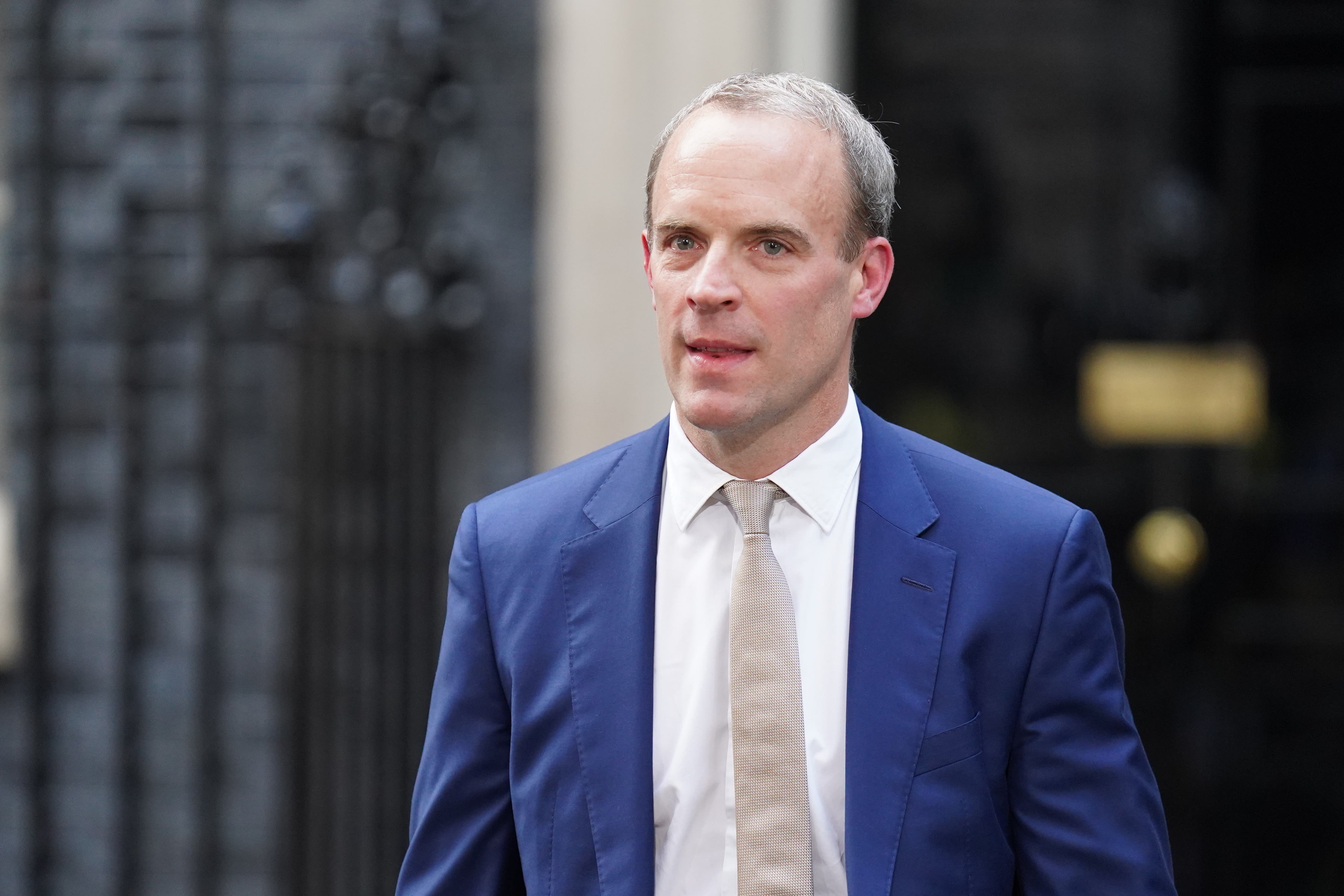What does the Nadhim Zahawi sacking mean for Dominic Raab?
The deputy PM is facing multiple allegations of bullying. Adam Forrest looks at whether the PM’s zero-tolerance approach to ministerial code breaches spells trouble for Raab


Government investigations are usually tediously slow affairs, designed to take the sting out of scandals as well as to ensure that evidence is gathered in painstaking good order.
Rishi Sunak was desperate for the probe by his ethics adviser, Sir Laurie Magnus, into Nadhim Zahawi’s tax saga to be a quick one. No 10 will be grateful for the express delivery of the report, which led to the Tory chair’s sacking on Sunday morning, less than a week after it was ordered.
But it has not stopped some from speculating that Mr Sunak could simply have asked his own questions of Mr Zahawi, and sacked him more than a week ago – saving the party so many damaging headlines about a super-wealthy Tory minister in trouble with HMRC.
Former Tory minister Michael Portillo said the delayed firing made Mr Sunak “look weak”, and that the prime minister had “an opportunity to get rid of him earlier”.
The spotlight will now turn to focus on the fate of Dominic Raab, and on how quickly an independent inquiry into bullying allegations made against the deputy prime minister might now conclude.
The PM appointed top employment lawyer Adam Tolley KC in November to investigate the complaints about Mr Raab’s behaviour – including claims that it had left civil servants too scared to enter his office.
With even the right-wing bible The Spectator saying the Tories are “rolling” in sleaze again, the prime minister will be eager for the investigation to wrap up quickly, one way or another. But it may be difficult for Mr Tolley to finish soon, having had so many interviews to carry out in recent weeks.
A total of eight formal complaints of bullying – denied by Mr Raab – have been made against him from his time at three different departments, according to No 10. But at least 24 civil servants are involved in these complaints, according to The Guardian.
Government insiders have said they want the Tolley report to be presented in a “timely way”, hinting that they do not want a repeat of the probe into bullying claims relating to Priti Patel, which took six months.
Mr Sunak will have been made aware of considerable grumbling by Tory MPs about Mr Zahawi this week, with backbenchers upset that the saga was allowed to drag on and further damage the party’s reputation ahead of the spring local elections.
The PM and his allies will insist he acted “decisively” to uphold standards – unlike his predecessor-but-one Boris Johnson – having vowed to bring “integrity” back to government on his first day at No 10.
Could this desire to be “decisive” on perceived instances of sleaze spell bad news for Mr Raab? Not necessarily. The Zahawi saga shows that Mr Sunak is also a stickler for “due process” and wants his ministers to be given a fair hearing.
But Mr Sunak now appears to have set a zero-tolerance precedent when it comes ministerial code breaches, sacking Mr Zahawi within an hour of receiving his ethics adviser’s report.
The ministerial code states: “Ministers should be professional in their working relationships with the civil service and treat all those with whom they come into contact with consideration and respect.”
Mr Johnson took a laissez-faire approach to standards, deciding to “stick with Priti” despite his ethics adviser at the time, Sir Alex Allan, finding that Ms Patel had indeed broken the rules governing ministers’ behaviour.
If the Tolley investigation substantiates some of the bullying claims about Mr Raab that have appeared in the press, it may be impossible for the prime minister to follow the politically toxic path taken by Mr Johnson.






Join our commenting forum
Join thought-provoking conversations, follow other Independent readers and see their replies
Comments